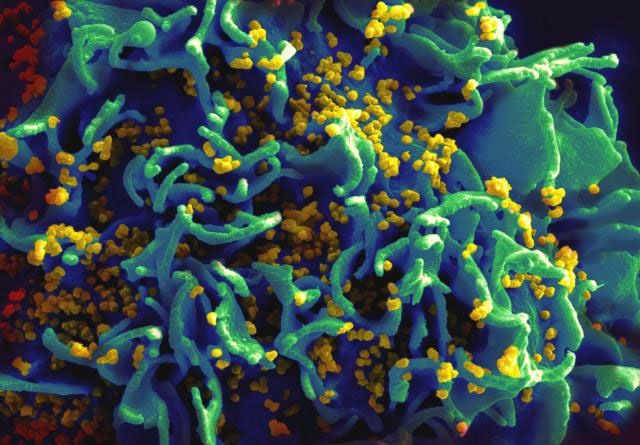Lumefantrine – ARV PK/PD Study Group
Lumefantrine – ARV PK/PD Study Group

An analysis of pooled individual patient data to determine the effect of antiretroviral (ARV) drug-drug interactions and HIV disease on lumefantrine pharmacokinetics (and pharmacodynamics). The analysis aims is to contribute evidence needed to inform recommendations on the use and optimal dosing of artemether-lumefantrine in HIV-infected patients.
Data submissions have now closed and analysis has been completed. A draft publication is being circulated around study group members and submission is expected in Q2 2018.
Despite artemether-lumefantrine (AL) being the most widely recommended treatment for uncomplicated malaria, and the large geographic overlap in malaria and HIV transmission areas, the effect of antiretroviral drug-drug interactions and HIV-related disease on lumefantrine (+desbutyl-lumefantrine) pharmacokinetics and pharmacodynamics (PK/PD) is not yet clearly defined. Higher lumefantrine concentrations have been reported when AL is co-administered with protease inhibitors (1-5), and lower lumefantrine concentrations seen when AL is co-administered with efavirenz (1,6-9). The effects of nevirapine-based regimens on lumefantrine exposure have not been consistent, with some studies reporting unchanged or decreased lumefantrine concentrations (1,6,7,9) and others reporting increased lumefantrine concentrations (10,11). Pooled analyses are needed to resolve important questions, such as whether dosage adjustments should be considered when AL is co-administered with either efavirenz or protease inhibitors, and understand any effects of nevirapine-based ARVs on lumefantrine exposure, and to determine whether HIV disease itself alters lumefantrine drug concentrations.
- Define the effect of co-administration of antiretrovirals on lumefantrine exposure.
- Detect any HIV disease effect on lumefantrine exposure
- Determine whether antiretroviral drug infections and or HIV co-infection alter artemether-lumefantrine therapeutic efficacy.
- Patients with or at risk of malaria OR healthy volunteers (both-HIV infected or uninfected)
- Treated with artemether-lumefantrine (including single dose in healthy volunteers)
- HIV infected OR treated with antiretroviral/s
- Drug concentration(s) of lumefantrine (+ desbutyl-lumefantrine) measured.
After upload to the WWARN Data Repository, data sets will be transformed, standardised and pooled according to the WWARN Pharmacology and Clinical Data Management and Statistical Analysis Plans. The statistician appointed to the project will develop a statistical analysis plan specifically for the pooled analysis, in collaboration with Study Group members.
The pooled lumefantrine ARV PK/PD database will include the following:
- Demographics
- Baseline patient characteristics
- Clinical signs and symptoms over time
- Date ARV started and current regimen
- CD4 and viral load if available in HIV infected patients
- Dosing (mg/kg dose and dosing times) for lumefantrine and ARVs
- Lumefantrine (+ desbutyl-lumefantrine) concentration(s) and sample time(s)
- Parasite densities over time
- Treatment outcome (including PCR, if available)
- Haematology (biochemistry)
- Molecular markers of resistance
The Study Group comprises participating investigators who contribute relevant data sets to the pooled analysis. Data sets remain the property of the investigator. The Study Group will be asked to assist in the identification of any further relevant studies and will collectively make decisions with respect to data analysis plans and plans for publication, in line with the WWARN Publication Policy. The Study Group will be led by Professor Karen Barnes, Head of WWARN Pharmacology Group, at the University of Cape Town.
For further information, email Karen Barnes (karen.barnes@wwarn.org) or Elizabeth Allen (elizabeth.allen@wwarn.org).
- Hoglund RM, Byakika-Kibwika P, Lamorde M, Merry C, Ashton M, Hanpithakpong W, Day NP, White NJ, Äbelö A, Tarning J. Artemether-lumefantrine co-administration with antiretrovirals: population pharmacokinetics and dosing implications. Br J Clin Pharmacol. 2015 Apr;79(4):636-49.
- Kakuda TN, DeMasi R, van Delft Y, Mohammed P. Pharmacokinetic interaction between etravirine or darunavir/ritonavir and artemether/lumefantrine in healthy volunteers: a two-panel, two-way, two-period, randomized trial. HIV Med. 2013 Aug;14(7):421-9.
- Achan J, Kakuru A, Ikilezi G, Ruel T, Clark TD, Nsanzabana C, Charlebois E, Aweeka F, Dorsey G, Rosenthal PJ, Havlir D, Kamya MR. Antiretroviral agents and prevention of malaria in HIV-infected Ugandan children. N Engl J Med. 2012 Nov 29;367(22):2110-8.
- Byakika-Kibwika P, Lamorde M, Okaba-Kayom V, Mayanja-Kizza H, Katabira E, Hanpithakpong W, Pakker N, Dorlo TP, Tarning J, Lindegardh N, de Vries PJ, Back D, Khoo S, Merry C. Lopinavir/ritonavir significantly influences pharmacokinetic exposure of artemether/lumefantrine in HIV-infected Ugandan adults. J Antimicrob Chemother. 2012 May;67(5):1217-23.
- German P, Parikh S, Lawrence J, Dorsey G, Rosenthal PJ, Havlir D, Charlebois E, Hanpithakpong W, Lindegardh N, Aweeka FT. Lopinavir/ritonavir affects pharmacokinetic exposure of artemether/lumefantrine in HIV-uninfected healthy volunteers. J Acquir Immune Defic Syndr. 2009 Aug 1;51(4):424-9.
- Maganda BA, Ngaimisi E, Kamuhabwa AA, Aklillu E, Minzi OM. The influence of nevirapine and efavirenz-based anti-retroviral therapy on the pharmacokinetics of lumefantrine and anti-malarial dose recommendation in HIV-malaria co-treatment. Malar J. 2015 Apr 25;14(1):179.
- Maganda BA, Minzi OM, Kamuhabwa AA, Ngasala B, Sasi PG. Outcome of artemether-lumefantrine treatment for uncomplicated malaria in HIV-infected adult patients on anti-retroviral therapy. Malar J. 2014 May 30;13:205.
- Huang L, Parikh S, Rosenthal PJ, Lizak P, Marzan F, Dorsey G, Havlir D, Aweeka FT. Concomitant efavirenz reduces pharmacokinetic exposure to the antimalarial drug artemether-lumefantrine in healthy volunteers. J Acquir Immune Defic Syndr. 2012 Nov 1;61(3):310-6.
- Byakika-Kibwika P, Lamorde M, Mayito J, Nabukeera L, Namakula R, Mayanja-Kizza H, Katabira E, Ntale M, Pakker N, Ryan M, Hanpithakpong W, Tarning J, Lindegardh N, de Vries PJ, Khoo S, Back D, Merry C. Significant pharmacokinetic interactions between artemether/lumefantrine and efavirenz or nevirapine in HIV-infected Ugandan adults. J Antimicrob Chemother. 2012 Sep;67(9):2213-21.
- Kredo T, Mauff K, Van der Walt JS, Wiesner L, Maartens G, Cohen K, Smith P, Barnes KI. Interaction between artemether-lumefantrine and nevirapine-based antiretroviral therapy in HIV-1-infected patients. Antimicrob Agents Chemother. 2011 Dec;55(12):5616-23.
- Chijioke-Nwauche I, van Wyk A, Nwauche C, Beshir KB, Kaur H, Sutherland CJ. HIV-positive nigerian adults harbor significantly higher serum lumefantrine levels than HIV-negative individuals seven days after treatment for Plasmodium falciparum infection. Antimicrob Agents Chemother. 2013 Sep;57(9):4146-50


